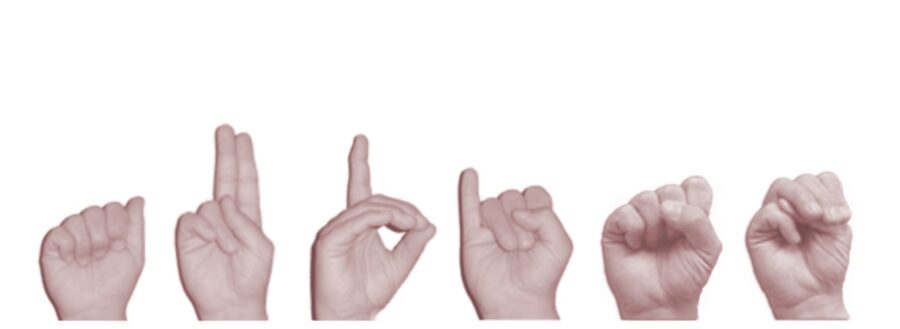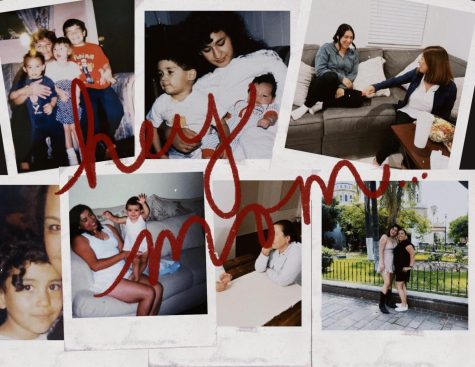Audism
No, that’s not a typo, it’s a prejudice.
The sound of the ocean on a calm day, wind rustling through the trees, the clamor of pans hitting the floor. Everyday sounds most people take for granted. To those who can hear, these are a part of daily life, but what if you couldn’t hear them? What if you lived in a world of silence, watching as others laughed, sang, and yelled? That is the world David Pesqueira has lived his whole life. Although some may think being Deaf is a disability, Pesqueira sees it in another light.
Pesqueira was born Deaf but, mysteriously, it doesn’t appear to have been passed on to him from any of his relatives. Everyone in his family is able to hear except for him. At the age of 3, Pesqueira began learning American Sign Langange, ASL, in order to communicate with the world at large. Growing up, he had to rely on pen and paper to communicate with his family because on one knew ASL. Later on, his mother and brother learned how to sign, but their skills slowly diminished with decreased use through the years.
Although he does not call his inability to hear a disability, many others—especially those in the hearing world—do. The labeling of Deaf people as disabled is a misconception due to the hearing community’s lack of education and awareness of the Deaf community. There are even instances where oppression, known as audism, takes place.
H-Dirksen Bauman of the Gallaudet University for the Deaf in D.C. wrote in a journal that audism is a reference to discrimination directed toward Deaf people. In the broadest of terms, audism refers to discrimination towards people who are Deaf or hard of hearing. However, some members of the community go further in describing what audsim means. Elizabeth Bravo, who is hard of hearing, describes audism as a form of oppression to the Deaf and hard of hearing community, especially in regards to the ability to work.
To explain how audism is commonly practiced in society, Pesqueira used the example of employers preferring applicants that can hear over Deaf applicants. “Because of the unwillingness to deal with the Deaf person’s so-called disability, the Deaf person’s application is often times denied or not even considered. Many Deaf people will get the run around when it comes to getting a call back from a potential employer.”
In fact, according to OxfordJournals, deaf male college graduates with a bachelor’s degree on average tend to earn less annually than hearing males with an associate degree. Despite some trouble with securing a job, Pesqueira has found steady employment through the Mt. San Antonio College Speech and Sign Language Success Center where he is a sign language tutor coordinator.
He is not alone in facing employment discrimination because of being Deaf. Bravo, 22, an international relations and communications major at Mt. SAC, said she has also found it difficult to find work. “I have found difficulties due to the fact that communication plays a big role in all jobs so looking for a job that suits me is hard to do. Even when applying, I guess, once they find out I am hard of hearing they possibly have their doubts.”
Bravo identifies as hard of hearing as opposed to Deaf because she is partially Deaf.
There are tools to assist the Deaf or hard of hearing who wish to meld into the general hearing community. The cochlear implant, a device that works within the brain, is one such example. But some Deaf and hard of hearing people do not agree with the device or its uses. Bravo explained that some in the community may oppose it because it alters their natural state.
“It’s like doctors are trying to ‘fix’ us, like being deaf is a bad thing but it’s not.”
She added that although they are good, they are not good enough. “I think it would improve my ability to obtain opportunities out there, but then I’m not so sure [about getting it] because I am who I am.”
Pesqueira said a reason many Deaf people are confined to this audistic oppression is because of their upbringing. “Many of the Deaf people that are lethargic about their education have experienced audism, or have not had positive support from their families while growing up. We need to get these people out of their negative environment and into a more positive one.”
While attending school, Pesquiera noticed that many of his Deaf friends did not like reading or other school related activities, but preferred hanging out with friends or playing sports. He said he wondered why schools put such an emphasis on sports rather than education. “If more schools pointed Deaf children toward learning and education, there would be a rise in educated, and motivated Deaf people and a decrease of oppression.”
Sandon Larson is a professor who has placed education and learning in the forefront of his life. Larson, 29, teaches various colleges throughout Southern California including Mt. San Antonio College, Biola University, and Santa Ana College. Larson, like Pesquiera, is Deaf.
Many hearing people who meet Larson for the first time are surprised to learn of his educational background and all of his accomplishments at such a young age. Larson’s good friend Artie Anchondo, 26, a Sign Language/Interpreting major, is one of these people.
“When I first met Sandon back in the fall of 2011, I could not believe how accomplished he was. He is so young and he is very motivated to get his education and to start a family,” Anchondo said.
In addition to teaching, Larson is currently studying at Gallaudet University to obtain his master’s degree. He is married to Laura Larson, an ASL interpreter, and father of two children.
“Sandon is another great role model for Deaf people because he is very eager to learn, he is friendly, and he has accomplished many things,” Pesqueira said. During the fall 2014 semester, Larson was asked to speak to the Deaf students at Mt. San Antonio College to encourage them in their studies and to show that they can do anything they want to do in life.
Bravo said that her involvement with various organizations has also helped her overcome some instances of audism, but in school she sees it more commonly. When it comes to various projects, she said people may not adequately involve her because she is hard of hearing. “People often do not make an effort, or possibly think I can do more than what I can.”
Deaf people, like Pesqueira and Larson, are trying to overcome audism by proving that they can do anything a hearing person can do. The video shown below features Pesquiera and allows a look into his life as a Deaf person. The video documents his ability to lead a life not so different from anyone else.
Substance is a publication of the Mt. San Antonio College Journalism Program. The program recently moved its newsroom over to Medium as part of a one-year experiment. Read about it here.








